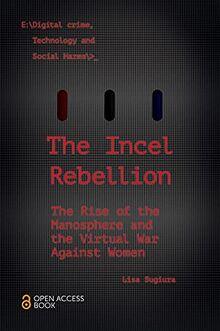In a landmark legal development, a man in France has become the country’s first individual to face charges under laws addressing the so-called “incel” subculture, following allegations of a planned attack targeting women. The case marks a significant moment in France’s efforts to tackle violent extremism rooted in misogynistic ideologies, as authorities highlight the growing concern over online communities that promote hostility toward women. This article examines the details of the case, the legal framework involved, and the broader implications for public safety and social policy.
Man Faces Historic Incel-Related Charges in France Over Alleged Violence Plot
French authorities have taken a groundbreaking step by charging a man in what is believed to be the country’s first criminal case linked directly to the controversial “incel” movement. The suspect allegedly orchestrated a plan to commit violent acts targeting women, raising alarms over the potential dangers posed by radicalized individuals within this community. Officials revealed that the investigation uncovered detailed preparations involving weapons and specific targets, underscoring the severity of the threat. This case highlights growing concerns about the global influence of incel ideology, which has been associated with misogyny and fatal attacks in other countries.
The incident has sparked a broader discussion about the social and legal challenges in addressing online extremism and gender-based violence. Key points emerging from the case include:
- Legal precedent: This prosecution marks a first in France and could set standards for future cases tied to extremist subcultures.
- Preventive measures: Calls for enhanced monitoring of hate speech and incitement on digital platforms.
- Community impact: Increased awareness campaigns aimed at combating misogynistic ideologies that fuel violence.
| Category | Details |
|---|---|
| Suspect’s Age | 28 years old |
| Charges Filed | Conspiracy to commit violence |
| Investigation Duration | 6 months |
| Weapons Implicated | Knives, machetes |
Understanding the Incel Phenomenon and Its Rise as a Security Threat
The incel phenomenon, short for “involuntary celibates,” has steadily morphed from an online subculture of alienated men expressing despair over their romantic failures into a dangerous and volatile security concern. Originating on internet forums where members share grievances around rejection and loneliness, the movement has been increasingly linked with extremist ideologies and violent acts targeting women. The case at hand marks a troubling milestone in France, spotlighting how these ideologies are crossing borders and morphing into tangible threats. This evolution has alarmed security agencies and policymakers, who now recognize the need for early intervention strategies to prevent radicalization within these loosely organized communities.
Analysts outline several contributing factors propelling the rise of incel-related violence:
- Online radicalization: Echo chambers reinforce hatred and misogyny, validating violent fantasies.
- Social isolation: Many adherents suffer from profound loneliness and mental health struggles.
- Identity crisis: A lack of belonging and purpose drives some towards extremist narratives.
With the emergence of plots like the one recently foiled in France, governments are increasingly categorizing incel extremism alongside other forms of homegrown terrorism. The challenge lies in crafting a nuanced approach that balances civil liberties with targeted security measures to curb this growing menace without alienating vulnerable individuals who could otherwise be steered towards positive support networks.
| Factor | Impact | Security Concern |
|---|---|---|
| Online Communities | Amplify toxic ideologies | Radicalization risk |
| Social Marginalization | Increased isolation | Potential for violence |
| Psychological Issues | Heightened despair | Trigger for attacks |
Legal and Social Implications of France’s First Incel Case
France’s unprecedented legal handling of an incel-related case marks a critical moment in addressing the intersection of ideology and criminal behavior. This landmark prosecution challenges the judiciary to navigate uncharted territory where misogynistic online communities translate into tangible threats of violence. Authorities emphasize that this case not only confronts the individual’s actions but also scrutinizes the broader societal undercurrents fostering radicalization. The trial underscores the urgent necessity for legal frameworks to evolve, particularly in combating gender-based hate crimes fueled by digital subcultures.
The social implications extend beyond courtroom walls, sparking national debate on the influence of online extremist narratives. Civil society groups and policymakers are calling for comprehensive strategies including:
- Enhanced monitoring of online platforms to disrupt hate speech proliferation.
- Public awareness campaigns to educate citizens about the dangers of incel ideology.
- Improved mental health support for vulnerable individuals susceptible to radicalization.
| Impact Area | Key Concern | Response Strategy |
|---|---|---|
| Legal System | Addressing emerging hate crime typologies | Updating penal codes & training |
| Social Media | Propagation of extremist rhetoric | Algorithmic moderation & red flags |
| Community Health | Isolation and vulnerability | Targeted psychological intervention |
Strategies for Prevention and Addressing Online Radicalization Among At-Risk Individuals
Tackling online radicalization demands a multifaceted approach that integrates technology, education, and community outreach. Early identification of individuals displaying signs of alienation or extremist ideologies is critical. Platforms can implement algorithmic interventions designed to limit the spread of harmful content while promoting positive, inclusive narratives. Simultaneously, mental health support systems tailored for at-risk individuals must be strengthened, providing accessible counseling and dynamic online resources that encourage dialogue rather than isolation.
Community programs play a pivotal role in disrupting the pathways toward radicalization. These initiatives should focus on fostering resilience through:
- Mentorship opportunities connecting vulnerable individuals with trusted figures.
- Educational workshops that promote digital literacy and critical thinking.
- Safe spaces for open discussion surrounding issues of identity and belonging.
Collaboration between law enforcement, social services, and technology companies is essential to balance privacy with prevention efforts while cultivating trust among community members.
To Wrap It Up
As France confronts its first high-profile incel-related case, the legal proceedings underscore growing concerns about misogynistic violence linked to extremist online subcultures. Authorities remain vigilant in addressing threats posed by such ideologies, emphasizing the need for continued awareness and preventive measures. The outcome of this case may set a precedent in how French law tackles the intersection of online radicalization and real-world violence, marking a critical moment in the nation’s ongoing efforts to combat gender-based threats.




